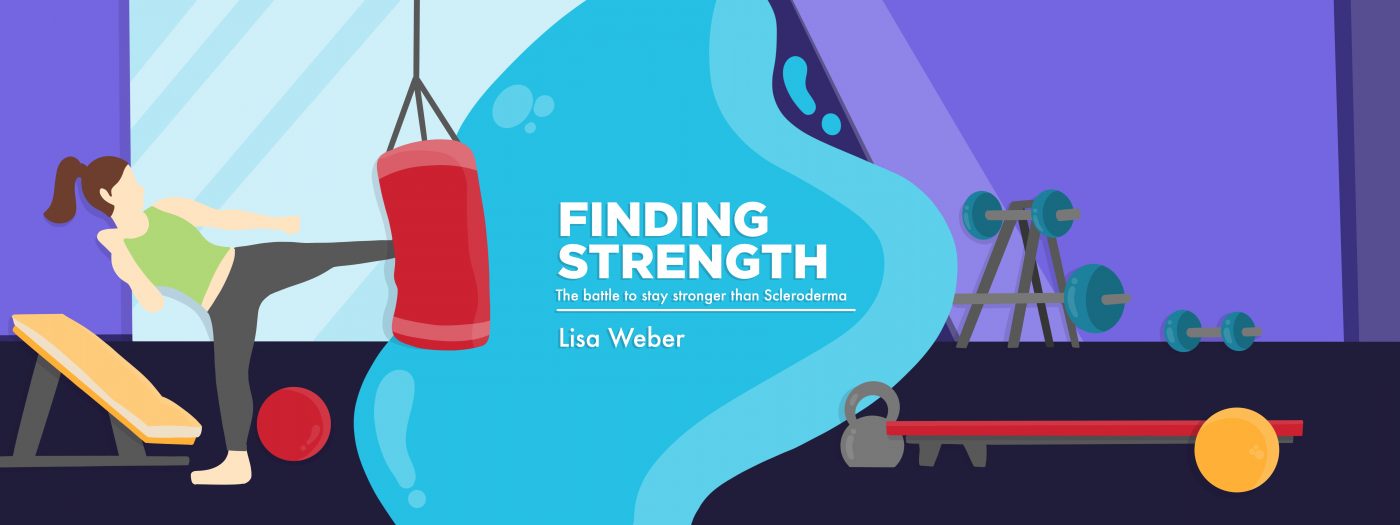How My Scleroderma Diagnosis Taught Me Empathy and Compassion
Columnist Lisa Weber says she's a better human being because of her diagnosis
Written by |

She was fumbling through her coupon book, desperately trying to ignore the stares and loud sighs. As the line to the cash register grew, the moaning and groaning intensified.
I gently said, “Take your time. You’re doing great.”
The young woman locked eyes with me, and I could instantly feel the pain in her heart. I choked back tears as she began to smile. Her grin spoke volumes, as if to say thank you for understanding.
I wasn’t angry with the impatient crowd behind us. I used to be just like them, so focused on daily routines that I looked past the people suffering all around me. I’m sure this woman would’ve loved to pull out a wad of cash and pay for her groceries without a care in the world. But I could see her trembling hands and hear the nervousness in her voice as she explained, “Hang on a second. I’ve got a coupon for that right here.” She was in survival mode.
Suffering opened my eyes
My scleroderma diagnosis came with a lot of horrible consequences. But it also strengthened my compassion and empathy for others. Scleroderma damaged me physically, but with each negative experience, I gained a deeper understanding of the invisible suffering people live with every day.
Before my diagnosis, I figured my health insurance would be like a superhero swooping down and carrying me through any illness. I’d just hand over my magical insurance card and all my financial responsibilities would be covered. In reality, scleroderma has me hitting my deductible by February and reaching my hefty out-of-pocket maximum by May.
And don’t get me started on my insurance company not covering specialists because they’re out of network, or medications because they’re not approved for treating my rare condition.
My family had to make considerable changes to our lifestyle just to afford my ongoing treatments. And knowing there’s no cure means those stresses are with us as long as I’m alive.
The financial burdens of having a rare disease go far beyond a steady influx of bills. Emotionally, I struggle with the fact that my life is expensive. I feel like a drain with no plug — I keep sucking all of the family resources away. Everything else we do as a family is secondary to my disease. Vacations, dining out, extracurricular activities — none of it happens until my bills are paid, and that’s not easy for us to do.
I’m more empathetic to strangers
It didn’t matter to me why the lady in front of me was pinching every penny. I could relate to the stress of making ends meet. And I know all too well how the suffering lasts long after driving away from the angry mob behind her in line.
I now make it a point to support everyone I can, whether it’s someone receiving glares for using coupons or someone else being gossiped about for being out sick again with “just a migraine.” I’ve learned that just because I’ve never experienced what they’re going through, it doesn’t mean it’s not challenging. It’s easy to think you could handle it better, but the reality is we can’t judge others because we don’t walk in their shoes.
At this point, I’ve worn all types of shoes — invisible pain, financial instability, a fear of dying, depression, being a full-time patient. I’ve been through enough to know that things can get worse, and there’s no room for judgment. In this way, scleroderma has made me a better human.
Being a better human makes a difference
I know I’m not changing anyone’s situation or healing them by smiling or saying, “Take your time. You’ve got this.” But I do know it makes people feel less alone in this harsh world. Knowing that just one person cares could be the difference between giving up or powering through another day.
Compassion and empathy are free to give. I just wish there was a way to teach others how to give it freely without having to suffer first.
Note: Scleroderma News is strictly a news and information website about the disease. It does not provide medical advice, diagnosis, or treatment. This content is not intended to be a substitute for professional medical advice, diagnosis, or treatment. Always seek the advice of your physician or other qualified health provider with any questions you may have regarding a medical condition. Never disregard professional medical advice or delay in seeking it because of something you have read on this website. The opinions expressed in this column are not those of Scleroderma News or its parent company, Bionews, and are intended to spark discussion about issues pertaining to scleroderma.







Tim Harley
Oh my!! Beautifully stated. I've been on both sides of the equation. And admittedly, I've spent my time being frustrated with others when I felt I was being held up. But you are so right. It costs us nothing to be compassionate. And it pays dividends which, that though we may not personally see them, can spread and grow exponentially as the seeds are planted.
Thank you for this.
Peace